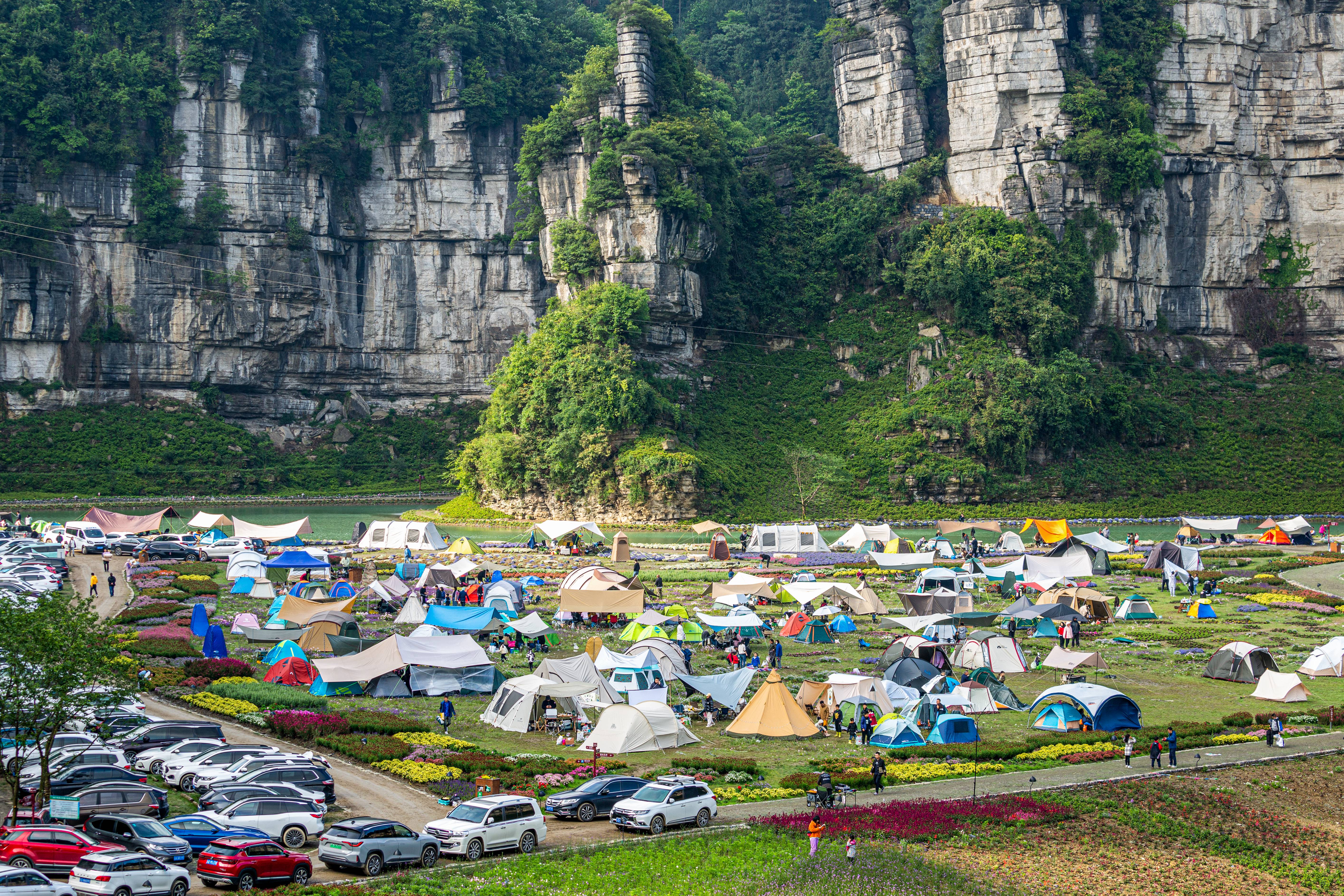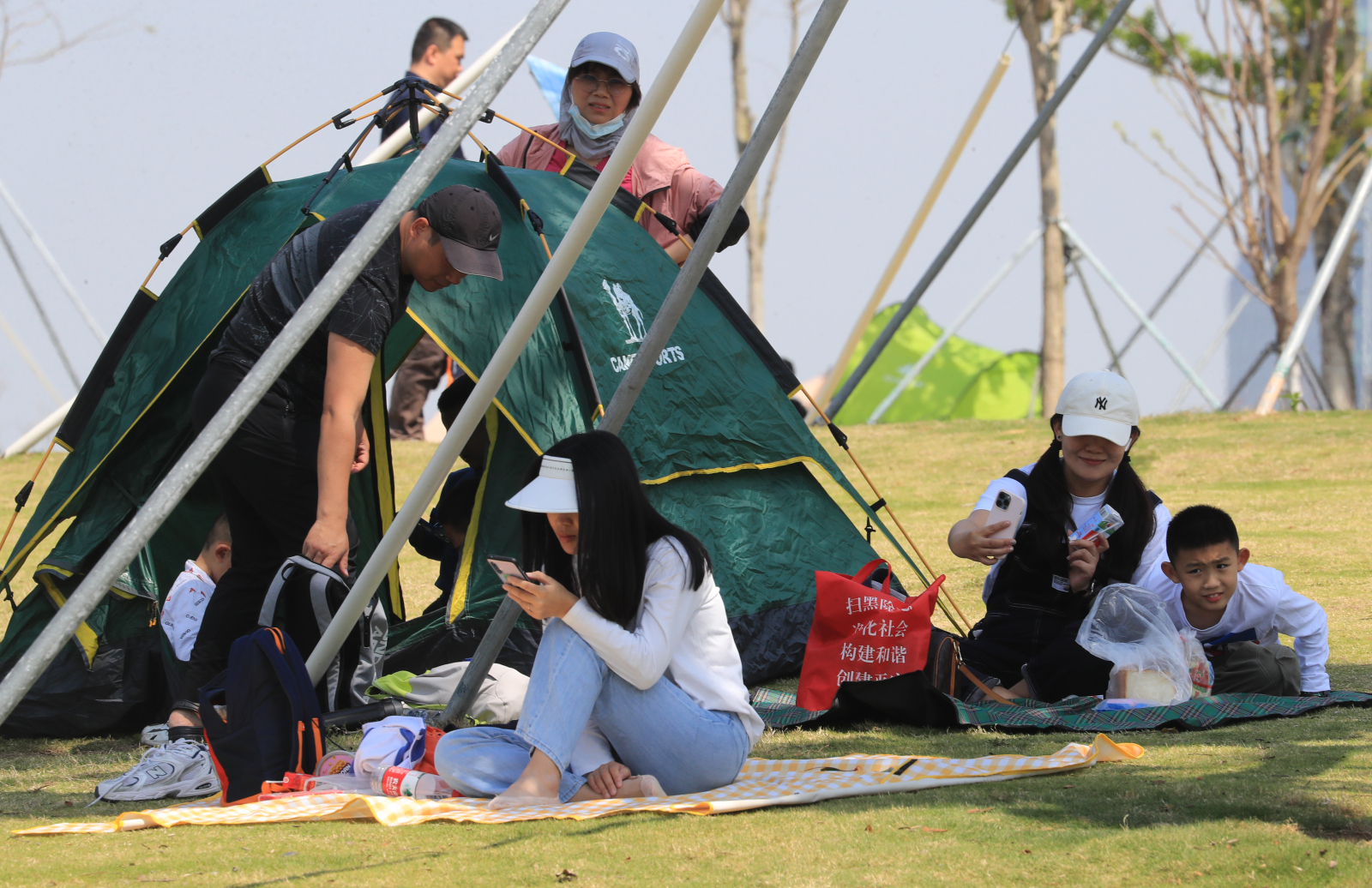May-day wind adds fuel to camping fire
Camping is really trending in China this year.
If you take a look at social media, there is one activity that seems to be everywhere: camping, or for some, glamping (glamorous camping). Walk into a park in Shenzhen during the weekend, there is a big chance that you find, in addition to seniors and children, young people taking over the green spaces with their fancy outdoor camping gear.
This new vacation fad has won the hearts of young people in China, especially during the just concluded May Day holiday.
“While long-distance travel is not feasible amid the COVID-19 epidemic, camping in parks and on beaches around the city is an excellent choice for vacation,” said Pan Mingyue, who was camping on the Binhai Park beach in Qingdao, Shandong Province.
The COVID-19 epidemic has forced many to give up long-distance travel plans, but it has seen a rise in short-distance leisure camping, and with the advent of summer, the camping market in China is definitely booming.
A staff member of a campsite in Tiexi District in Shenyang, capital of Northeast China’s Liaoning Province, said that the campsite had been fully reserved for the first day of the holiday.

According to qunar.com, since April, the search volume of camping related words on the platform has increased by 2.5 times year-on-year, four times that of the same period in 2020. Camping-related searches increased by 117% from the previous month during the May Day holiday while forests and islands were the two most popular campsites, according to a report released by Tongcheng Travel, an online travel services provider.
This year, the reservation volume of camping related products (accommodation and travel) is about three times that of last year.
Camping has offered an opportunity for tourist attractions to recover from the impact of the epidemic. “We launched the ‘highway tourism campsite’ initiative by highlighting the geographical advantage of being close to the highway exit to attract tourists,” said Zhao Yuping, from the Hongyeshiyan tourism area in Zibo City of Shandong Province.
Zhao added that they had some 30 tents on the terrace camping site, and all the tents had been booked before the holiday. People promenaded in the breeze, dined together in the warm sunshine, and slept under the stars, Zhao noted.

In Shenzhen, camping sites that offer equipment and services had been fully booked by the end of March. But 22 parks have assigned designated areas for leisure park camping, providing locals more camping options.
One of the major reasons camping has become so popular is that those who camp view it as “a time to relax, escape stress and clear their minds,” according to psychologists. Calling camping a new way of life, Gao Liying, a camping enthusiast, said it helps children develop hands-on skills and enhances their environmental awareness while getting close to nature.
China’s camping market is expected to continue growing in the coming days. According to a report released by Guangzhou-based research firm iiMedia Research, the scale of China’s camping market increased from 7.71 billion yuan (US$1.16 billion) in 2014 to 29.9 billion yuan in 2021, and it is expected to grow by 18.6% in 2022 to 35.46 billion yuan.
In addition to camping-related products, kites, frisbees, barbecues, bonfires, open-air movies, as well as recreational vehicle (RV) trips and other outdoor activities have also become increasingly popular.
The ultra-high growth rate and huge market volume have attracted many “gold diggers.”
According to Tianyan’s survey data, there are 47,000 camping related enterprises in China. Among them, nearly half of the enterprises were established within one year, and 40% of the enterprises were established between one and five years.
The camping industry in China has become one of the indispensable forms of outdoor tourism. As the country’s outdoor recreation tourism grows, camping near urban areas will continue to become increasingly popular, as it has fewer requirements and doesn’t involve long-distance travel, said Zhang Sining, a researcher with the Liaoning Academy of Social Sciences.